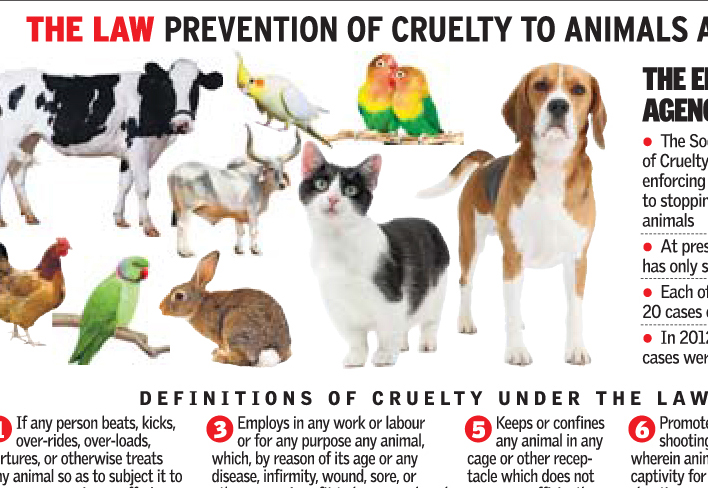In the realm of animal rights, the question often arises: what happens to your beloved pet if you are convicted of animal cruelty? This is a critical issue that extends beyond mere legalities; it strikes at the heart of our emotional connections with animals. Animal cruelty cases can lead to significant penalties, including the possibility of losing custody of your pet. So, can you keep your animal after an animal cruelty conviction in Tennessee? Let’s delve deeply into this question and explore the implications of such a conviction.
Animal cruelty laws in Tennessee are delineated under the Tennessee Code Annotated, particularly within Title 39, Chapter 14, which addresses the welfare of domesticated animals. In essence, these laws categorize behavior that inflicts harm upon animals—be it physical abuse, neglect, or abandonment—as criminal acts. If convicted, the ramifications are profound and often multifaceted.
What does it mean for you, as an animal owner? Upon a conviction for animal cruelty, there is a good chance that custody of your animal may be jeopardized. The courts take these matters seriously, particularly when they believe that an animal may still be at risk. Consequently, a judge has the authority to mandate the relinquishment of your pet, and it is not uncommon for the court to assign custody to a humane society or animal rescue organization. This immediate loss can be an emotional upheaval, leaving many pet owners in despair.
While the loss of custody is a stark reality, it’s essential to understand the full breadth of your rights in Tennessee. Upon a conviction, you may feel as though your rights have been entirely stripped away. However, the legal process does provide pathways for appeal and the possibility of retaining custody under certain conditions.
In Tennessee, a humane society might step in after your conviction, especially if they assess your animal’s well-being to be in jeopardy. Agencies responsible for animal welfare often work hand in hand with the legal system to ensure that animal rights are upheld. Nevertheless, this involvement can pose challenges for you if you wish to retain custody of your animal. The court may require you to meet several stipulations, such as undergoing mental health evaluations, attending counseling, or demonstrating that you have made genuine efforts to rehabilitate your ability to care for your pet adequately.
It is crucial to recognize that not all animal cruelty convictions are black and white. The definitions of “cruelty” can sometimes be ambiguous, leading to situations where individuals may be wrongfully accused. The potential for erroneous convictions serves as a reminder of the necessity for a robust legal defense. In such cases, a strong legal representation can significantly impact the decision regarding custody and the nuances of your rights. Especially if a misunderstanding or misinterpretation of the law led to your conviction, appealing for custody might be possible.
Should you find yourself grappling with the aftermath of a cruelty conviction, engaging an attorney experienced in animal law could be invaluable. They can help articulate your circumstances and represent your case effectively in court. An attorney’s expertise can guide you through potential legal remedies that you might not be aware of and could help in orchestrating a favorable outcome regarding your pet’s custody.
Moreover, Tennessee law stipulates that individuals convicted of animal cruelty may be subjected to further legal penalties, including fines, mandated community service, and even imprisonment. These consequences can extend beyond merely losing a pet; they can influence your future living conditions, employment opportunities, and social standing. Society often retains a long memory for such convictions, influencing personal and professional relationships far and wide.
As heartbreaking as it may be, even understanding the law does not guarantee that you will successfully keep your animal. The outcome often hinges on several factors, including the specifics of your case and your efforts in displaying rehabilitation. Animal welfare organizations may act as staunch advocates for animals, making their interests a priority in custody disputes.
Let us ponder about the emotional toll inflicted upon both the animal and the owner in these circumstances. The bond shared with a pet can be profound, with love and loyalty that surpasses many human relationships. The prospect of losing that connection due to a legal conviction invites a myriad of emotions, leading to feelings of helplessness, guilt, and distress. It is crucial to address these emotional ramifications through support systems, such as therapy or support groups designed for individuals facing similar challenges.
In light of all these complexities, it is vital that we examine the underlying reasons contributing to instances of animal cruelty. Education and awareness play pivotal roles in preventing such tragedies, embracing compassionate training for pet owners, and promoting responsible pet ownership. A proactive, informed community is less likely to encounter these situations. We must focus on building understanding and compassion toward animals while maintaining an unwavering stance against cruelty.
Ultimately, the question of whether you can keep your animal after a conviction involves understanding your legal standing, actively engaging with the court’s processes, and addressing the root causes of the behaviors that led to the conviction. Recognizing the potential challenges while exploring avenues for rehabilitation may serve as the cornerstone of regaining the cherished companionship of a beloved pet.








